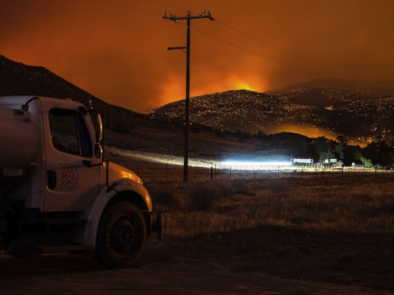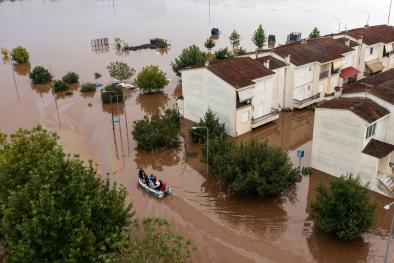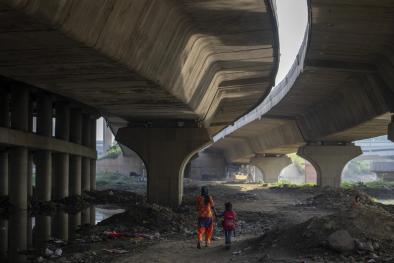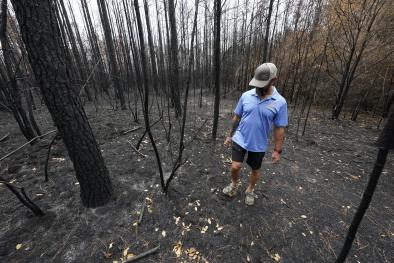In Greece, Wildfires Kill Dozens, Driving Some Into the Sea
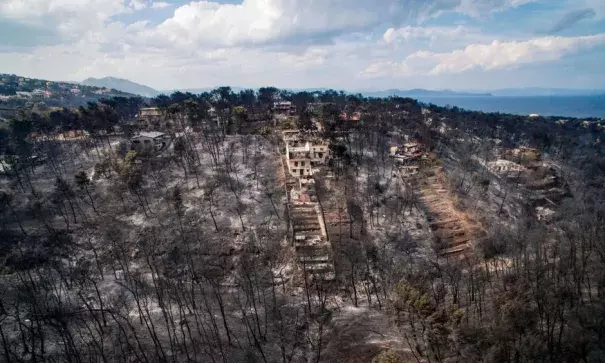
Fast-moving wildfires near Athens have killed at least 74 people, officials said on Tuesday, and have forced thousands of tourists and residents to flee in cars and buses, on foot, aboard boats and on makeshift rafts. In desperation, some people plunged into the Aegean waters and tried to swim to safety.
Gale-force winds topping 50 miles an hour have fanned a pair of fires that tore through seaside areas popular with travelers, leaving behind a trail of charred resorts, burned-out cars and smoldering farms, and wrapping the region in a pall of smoke. Officials said that at least 187 people were injured, including 23 children.
...
In a 24-hour period ending Tuesday morning, 47 new fires broke out, though all but four were quickly extinguished, said Stavroula Maliri, a spokeswoman for the national fire service. Government officials and others speculated that at least some of the fires had been set deliberately.
Europe has sweltered through an unusually hot and dry summer, breaking temperature records and fueling significant fires in several countries, including Sweden and Britain.
The extreme conditions are in line with patterns that scientists attribute to climate change. Heat waves can be linked to climate change in several ways: Increased greenhouse gases in the atmosphere hold more of the sun’s heat, raising temperatures globally. A hotter climate in turn changes the way air and ocean currents move around the planet, which can further increase temperatures in certain places, like the Mediterranean.
“In the Mediterranean we also see a drying effect: If you have a drier soil, it heats up more quickly,” said Friederike Otto, the deputy director of the Environmental Change Institute at the University of Oxford.
In Greece, blazes have consumed entire towns, locals said, and officials warned that the death toll would rise as emergency workers cleared burned homes and cars, in which some evacuees had become trapped.
Related Content
